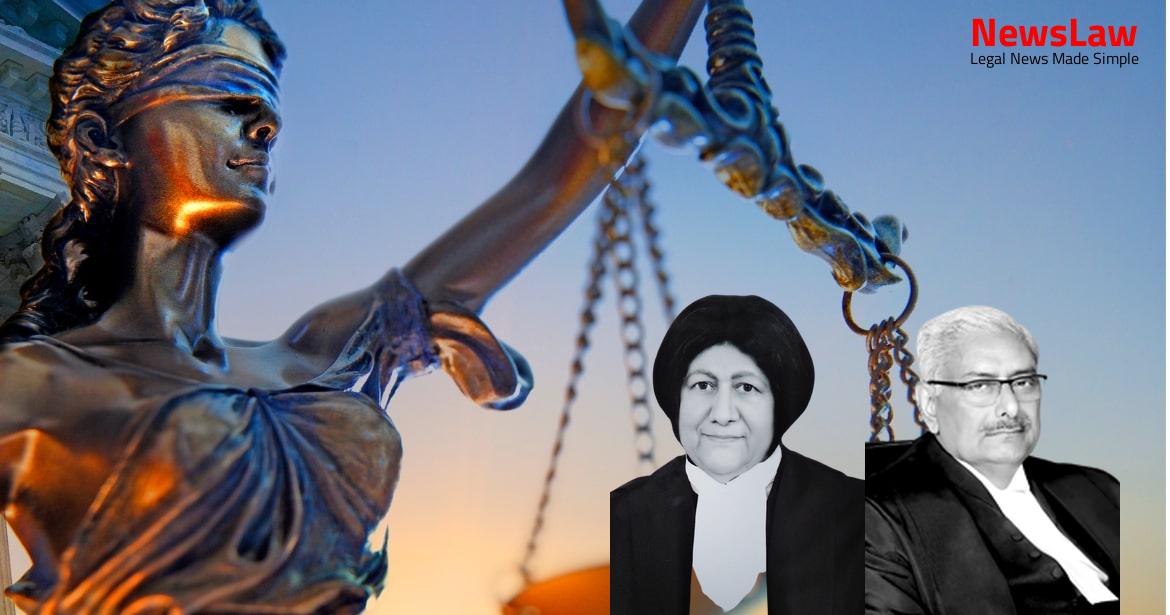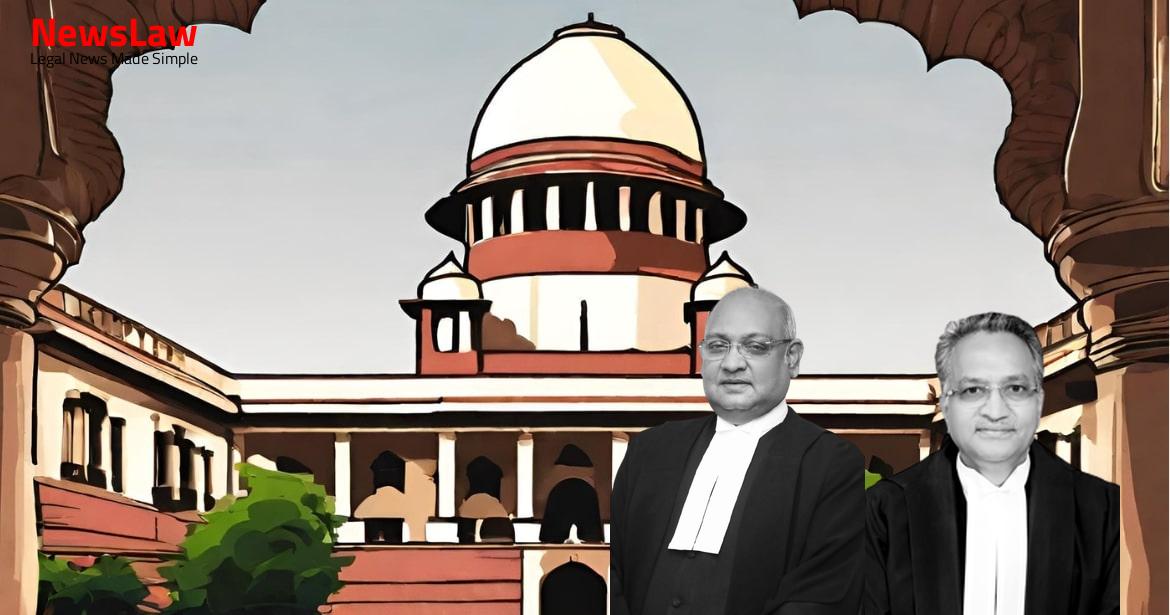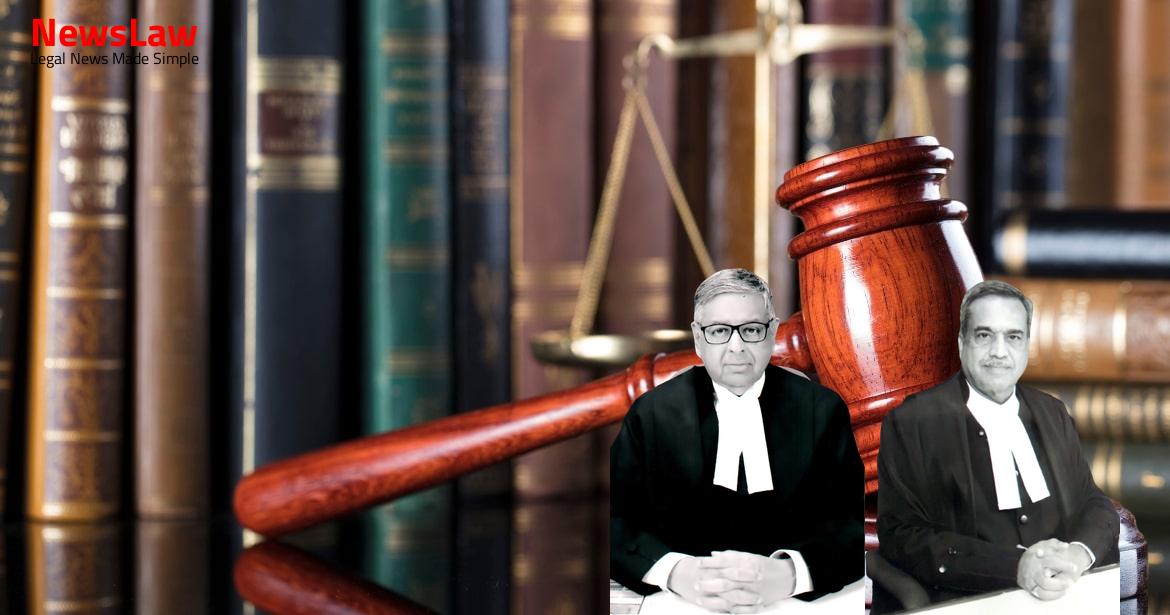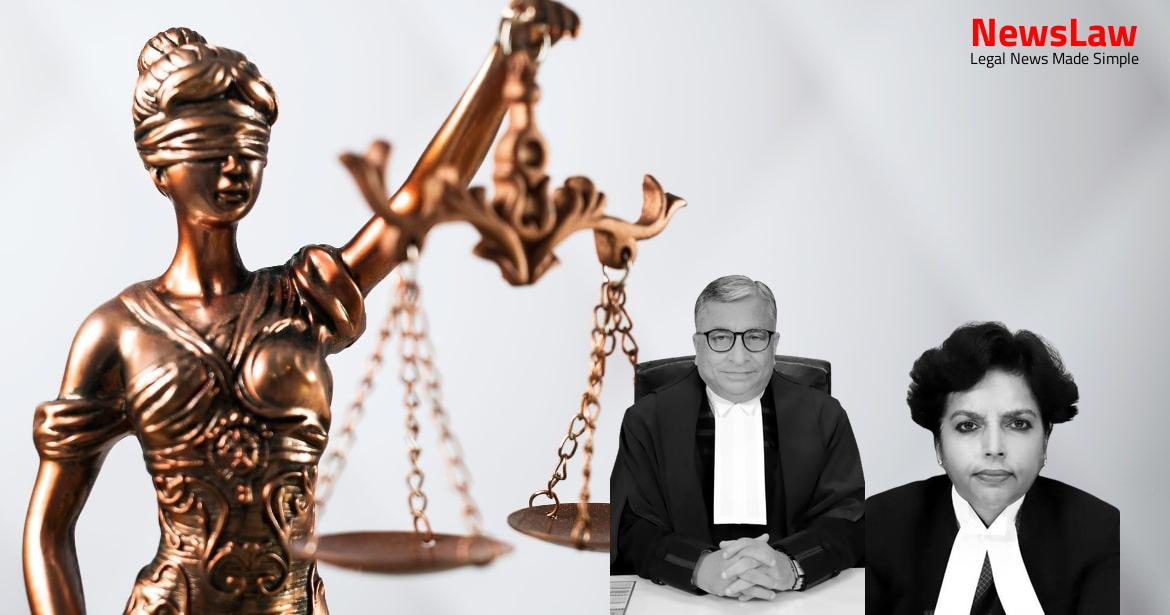Explore the in-depth legal analysis of a significant court’s judgment regarding the suspension of sentence and bail grant in a case related to dowry death. The court’s nuanced examination of the legal principles surrounding the case sheds light on the complexities involved in such matters and sets a precedent for future legal proceedings in similar circumstances.
Facts
- Respondent No.2 claimed the money taken from the victim’s brother was a loan, not dowry, as no FIR was filed for dowry harassment before the victim’s death.
- The post mortem report stated the cause of death as ‘asphyxia as a result of ante-mortem hanging,’ indicating suicide.
- The Sessions Court sentenced Respondent No.2 to various terms of imprisonment and fines for multiple offenses.
- The High Court order granted bail to Respondent No.2, staying the execution of the sentences.
- The High Court passed a short and non-speaking order after considering submissions from both parties.
- The Respondent No.2 threatened to end the marriage on the evening of 24.8.2010.
- The victim’s husband and in-laws harassed her for more dowry, including cash and a Pajero car.
- The victim’s family had spent around Rs.21 lacs for her marriage.
- Contradictory suggestions were made regarding the victim’s suicide, one involving another boy and the other suggesting mental illness.
- The Sessions Court convicted Respondent No.2, his parents, and his sister under various sections of the IPC and the Dowry Prohibition Act.
- The victim’s family provided oral evidence of the harassment she faced post-marriage.
- The victim used to complain to her family members about the harassment by her in-laws.
- Defence witnesses tried to establish the victim’s involvement with a particular individual.
- The victim died in non-natural circumstances within 8½ months of her marriage.
- A First Information Report was filed on 25.8.2010 against Respondent No.2, his parents, and sister.
- The post mortem report indicated death due to ante-mortem hanging.
- Cash was taken by Respondent No.2 from the victim’s brother on 17.6.2010.
- The accused were examined under Section 313 of the CrPC.
- The Sessions Court conviction was appealed in the High Court by Respondent No.2.
- Accused-appellant was granted bail during the pendency of the appeal based on the facts and circumstances of the case.
- Charges were framed against the accused under various sections, and they pleaded not guilty and claimed trial.
- The Prosecution examined eight witnesses, including the complainant, the victim’s mother, and paternal aunt.
- The victim expressed fear for her life during the investigation.
Also Read: Land Sale Dispute Legal Analysis
Analysis
- The Trial Court considered evidence of dowry demand, indicating the victim was traumatized.
- It is not within the Court’s purview to reassess evidence in an application under Section 389 for bail.
- The High Court’s bail decision is questioned based on lack of apparent illegality in the Sessions Court judgment.
- Suspension of sentence post-conviction implies guilt; presumption of innocence does not apply.
- An application for suspension of sentence must show prima facie erroneous conviction.
- Dowry is defined in the Dowry Prohibition Act, linked to the circumstances of the victim’s death.
- Orders granting bail should include reasons for prima facie conclusions to show proper application of mind.
- Bail jurisdiction should follow well-established principles and not be a routine matter.
- Section 304B added to IPC aimed at curbing dowry death; legislative intent to be considered in relevant cases.
- Once cruelty or harassment before death is proven, a presumption of dowry death arises.
- Oral evidence and payment of a sum to the accused strengthen the case against him.
- The accused has been convicted of non-bailable offences including Section 304B of IPC.
- Different principles apply under Section 389(3) for sentences exceeding three years or bailable offences.
- Section 389 allows the Appellate Court to suspend execution of sentence pending appeal and release the convicted person on bail.
- Section 304B outlines the conditions under which the husband or relatives are deemed to have caused the death of the bride, including death in unnatural circumstances within 7 years of marriage and cruelty or harassment for dowry.
- Section 304B was incorporated to curb the menace of dowry death with a firm hand.
- Appellate Court must exercise discretion judiciously under Section 389(1) considering substantial doubts on conviction validity and likelihood of unreasonable delay in appeal disposal.
- Difference between bail under Section 439 pre-trial arrest and suspension of sentence under Section 389 post-conviction.
- Grant of bail post-conviction under Section 389 requires strong and compelling reasons to be recorded in the order as mandated by law.
- Importance of assigning reasons while granting bail reiterated by referring to various cases.
- Exercise of discretion in granting bail must be based on well-settled principles and not as a matter of course.
- The failure to lodge an FIR before the victim’s death regarding dowry and harassment was deemed inconsequential.
- The victim’s family refrained from filing an FIR against the Respondent No.2 to avoid worsening the marital situation.
- The High Court’s casual suspension of the sentence and granting of bail to Respondent No.2 without reasons was criticized.
- The High Court’s acceptance of the Respondent No.2’s claim that Rs.2,50,000 was a loan due to the victim’s brother not being examined was noted.
- Evidence revealed that the Appellant spent beyond his means at the victim’s wedding, including gifting an I-10 car.
Also Read: Judicial Review of Environmental Compliance Orders
Decision
- The impugned order of the High Court is overturned
- Respondent No.2 must surrender for custody
- Bail bonds are cancelled
- The appeal is successful and allowed
Also Read: Legal Analysis on Limitation Period in IBC Proceedings
Case Title: PREET PAL SINGH Vs. THE STATE OF UTTAR PRADESH (2020 INSC 493)
Case Number: Crl.A. No.-000520-000520 / 2020



